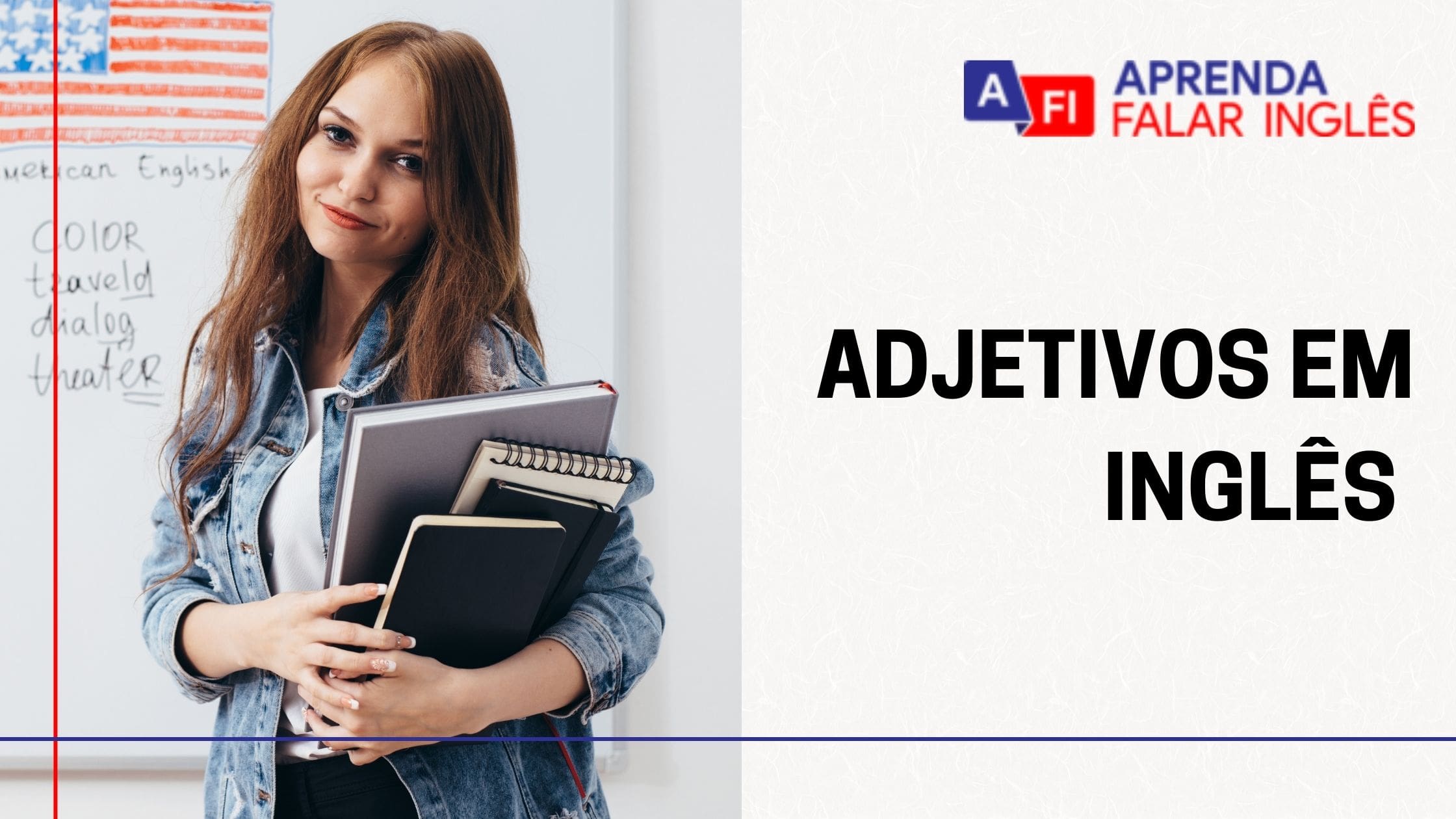- Texto em Inglês 25 – Do you like mountains? - 5 de junho de 2025
- Texto em inglês 24 – Do you like travelling? - 5 de junho de 2025
- Texto em Inglês 23 – I am not much of a traveller. I usually step out when I need to - 5 de junho de 2025
Um adjetivo é uma palavra que descreve uma ou mais características gerais de um substantivo na frase, modificando ou complementando aquele objeto.
Em inglês, consideramos adjetivo aquela palavra descritiva que geralmente precede o substantivo se não for o assunto principal, inclusive os números que descrevem sua quantidade exata (one, two, three…) e palavras que descrevem quantidades inexatas (many, lots, few… etc).
“Three close friends had dinner together”
(Três amigos próximos jantaram juntos)
three = adjetivo
close = adjetivo
friends = substantivo
Absolute, comparative & superlative adjectives
Podemos separar os adjetivos em inglês em três tipos: absolutos, comparativos e superlativos.
Na frase usada de exemplo acima, os adjetivos “three” e “close” estão modificando o substantivo “friends” de forma absoluta, ou seja, uma descrição sem relação direta com outros substantivos ou outros conceitos deste.
Em outras palavras, um adjetivo absoluto é a forma mais simples de descrever algo, tendo um sentido completo em si mesmo.
“This room is big enough”
(Este cômodo é grande o suficiente)
big = adjetivo absoluto
room = substantivo
Observe acima como o adjetivo pode vir depois do verbo quando é pertinente ao assunto principal da frase.
Se não houvesse necessidade de ênfase no tamanho do quarto, a frase poderia ser reescrita com o adjetivo acompanhando o substantivo: “This is a big room” (Este é um cômodo grande)
“This room is bigger than the other”
(Este cômodo é maior que o outro)
“Let’s go to a bigger room”
(Vamos para uma sala maior)
bigger = adjetivo comparativo

Como o nome já indica, o adjetivo comparativo tem seu sentido necessariamente atrelado a uma comparação entre duas ou mais coisas. Algo que é “bigger” (maior), sempre o será em relação à algo.
Portanto, é muito comum que frases com adjetivos comparativos estejam diretamente comparando objetos através da conjunção comparativa “than” (que), responsável por introduzir o segundo elemento para comparação.
O tipo comparativo é reconhecido por, na maioria das vezes, terminar em -er. Esta regra de formação somente deve ser aplicada aos adjetivos absolutos com até duas sílabas, conforme os exemplos:
loud → louder | You are loud but I am louder (Você é barulhento mas eu sou mais)
fast → faster | You are fast but I am faster (Você é rápido…)
simple → simpler
Life is not simple but it was simpler back then
(A vida não é simples mas era mais simples antigamente)
Caso possua mais de duas sílabas enquanto absoluto, o adjetivo é modificado para sua forma comparativa com a presença da palavra “more” (mais). Observe:
beautiful → more beautiful
mischievous → more mischievous
fantastic → more fantastic
Por fim, os adjetivos superlativos representam o maior grau daquilo que se descreve. Sendo incomparáveis, estão sempre acompanhados do artigo definido “the”.
“This is the biggest room in the building”
(Esta é a maior sala do prédio)
the biggest = adjetivo superlativo
Link verbs
Link verbs ou linking verbs são verbos que não indicam uma ação e podem ser usados para descrever algo ou alguém.
Eles são considerados conectores entre substantivos e adjetivos na maioria dos casos e são frequentemente usados para enfatizar tais descrições do substantivo em questão.
Nas frases abaixo, criadas a partir de uma expressão contendo um adjetivo e um substantivo, podemos observar três exemplos deste tipo de verbo: ser, parecer e sentir.
Beautiful house → “The house is beautiful” [verb to be]
Nice person → “This person seems nice” [verb to seem]
Comfortable couch → “The couch feels comfortable” [verb to feel]
Adjectives with -ing and -ed
Quando o adjetivo é formado a partir de um verbo, ele irá terminar com -ing ou -ed, dependendo do sentido pretendido. Observe os exemplos:
To Bore (Entediar) → “This bores me” (Isto me entedia)
→ “I’m bored” (Estou entediado) → “This is very boring” (Isto é muito entediante)
To control → controlled → controlling
“In the pharmacy there is controlled substances” (Na farmácia há substâncias controladas)
“You shouldn’t be a controlling person” (Você não deveria ser uma pessoa controladora)
Leia Mais:
Adjetivos em Inglês – Inglês com Música
Os adjetivos mais comuns em inglês (Lista com traduções)
Adjetivos de Personalidade em Inglês
Como Saber a Ordem dos Adjetivos em Inglês?
